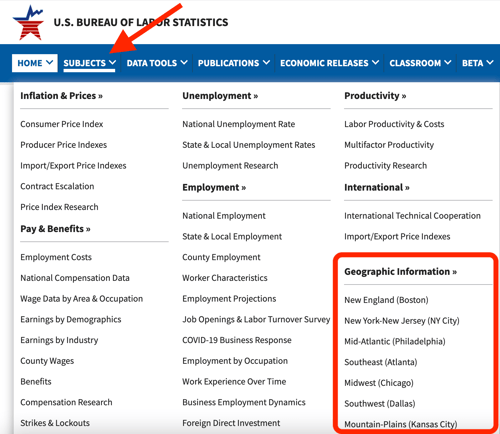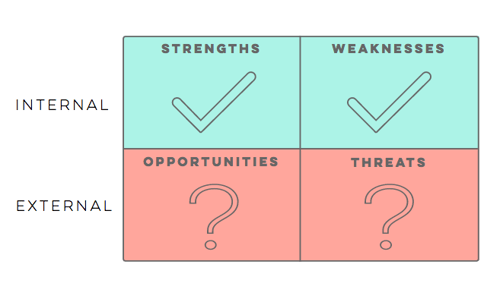When it comes to market research, it pays to plan. Although many organizations wing it and base their marketing campaigns and company strategy on their gut, the best-performing companies rely on market research and the data gathered to make fact-based decisions.
We’re going to walk you through what market research is, common types of market research, the step-by-step process for research surveys, its importance, and how to get started. It is your ultimate guide to understand what market research is and how your organization can stand to benefit by using it.
What is Market Research?
Market research comes in many forms, and you are never short of options. In its simplest form, market research is about creating a process to gather information, collecting data, and drawing answers and insights from the information. Although the processes, data collection methodologies, and analysis differ from project to project, the core definition holds: track, analyze, and act.
Here are some examples of different paths and approaches to market research.
Get your free copy of the Guide to Competitive Intelligence >>Secondary vs. Primary Market Research
At the highest level, there are two types of market research. Secondary market research (also known as desk research) involves compiling information and data from sources which already exist. Some examples of secondary market research include reviewing Census data, reading about new trends in an industry, and/or reviewing demographics in a customer database.
Primary market research is the process of collecting information which does not exist elsewhere. It involves creating a custom study to obtain new information rather than compiling data from existing sources. As opposed to reviewing demographics from a customer database, primary research would be fielding a new survey to your customers asking new questions to collect information your organization does not already have.
Qualitative vs. Quantitative Market Research
A second cross-road in market research is determining whether you want to conduct qualitative or quantitative research. Qualitative market research is more subjective and involves smaller sample sizes of respondents. It is used to explore products, services, and concepts, and the feedback is subjective, not scientific. An example of a common way to collect qualitative research is by hosting focus groups.
Quantitative market research is the opposite of qualitative. The goal of quantitative research is to measure. Quantitative research is built to arrive at more scientific and measurable results, which carry increased reliability, accuracy, and trust. It’s far less subjective than qualitative research. A common type of quantitative research that is conducted is a market research survey.
In order to determine whether you should go the qualitative or quantitative market research route, ask yourself the following question: “Do I want to explore or measure?”
Market Research Surveys
With the growth of the internet and mobile devices over the past few decades, no market research methodology has benefitted more than surveys. The most common type of survey decades ago was either a phone survey or mail survey. The industry is now predominantly using online surveys. Online surveys are cost-effective, timely, and offer high-quality data for your organization.
The survey process for market research involves many steps, which are outlined here:
Determine your objectives of the survey.- Who do we want to collect feedback from? Customers? Non-customers?
- What methodology is best for this audience: online, phone, mail, on-site?
- What do we want to learn from the survey? How will we use the results?
- Do we want to conduct the survey in-house or use a third-party expert?
- How many questions do we want to ask? Remember not ask questions you can’t act on.
- How long do we want the survey to be? Hint: The sweet spot is 5 minutes or less.
- If completed online, program and test the survey to ensure it’s free of errors.
- If through the mail, plan to print, assemble, ship, and potentially offer return postage.
- If through phone, prepare a list and a plan.
- Review the data as it’s returned to check for duplicates.
- Clean open-ended responses for typos and grammar.
- Understand the return to determine pace-to-goal. Send reminders if needed.
- Tabulate responses in total and by relevant breaks: age, gender, etc.
- Prepare an executive summary with highlights to help your team digest the data.
- Schedule a debrief and revisit your kickoff meeting goals to make sure they are addressed.
Why is Market Research Important?
If you look to any successful business product, service, or concept, you will find market research was the linchpin behind it. It is an integral part of operations, marketing, and strategy for all organizations.
Conducting market research and surveys eliminate risk and increase your chance of success. Ever heard of the cliche you don’t know what you don’t know? With market research, you now know. Market research can help you answer critical business questions facing your organization, such as:
- Are our customers satisfied? What are they dissatisfied with that would cause them to churn or go to a competitor?
- Which markets nearby offer the greatest chance of success for our expansion?
- What marketing offers us the best ROI? Where should we place our budget?
- Do visitors find our staff friendly and informative?
Answers to these questions and many others have huge ramifications on operations, marketing, and strategy for an organization. Sure, you can be successful without doing any market research but simple approaches like surveys can be largely beneficial.
Conducting market research helps you measure and track success. The intent of market research is to develop it into an ongoing program. For example, conducting customer satisfaction surveys on a yearly basis gives you an opportunity to measure growth and changes in feedback.
Market research becomes addictive because of the decisions based on facts and evidence are far better served than gut decisions. It is the great equalizer and can be applied within any department and any team. Think about your last boardroom meeting. How many questions were asked about marketing or strategy? If you had data or had completed a survey asking those very same questions to your customers, you would have those answers.
How to Get Started with Market Research
To design and implement a market research study, you have the option of working with an online survey company or subscribing to a platform and conducting in-house. Since market research can help in all aspects of your business, the first thing you’ll want to do is determine priorities. Ask yourself the following questions:
- Which questions facing your business are most critical?
- Which challenges could stand to benefit the most from market research information and data?
- Do we have a budget for market research?
- When do we need to have the information by?
- What methodology is the best fit for our target audience?
- Have we conducted any market research in the past? If so, what did we learn?
- Does our organization have any secondary data in-house that can be analyzed?
Answers to questions like these will help get the ball rolling and assist you in taking your first steps toward implementation. If you need some direction or advice, it can be helpful to reach out to an established thought-leader or consultant in the space to help you plan. Now that you’ve learned the market research basics, you and your team are ready to get started, and gain a competitive advantage by better understanding your market.

Seeing is believing! Check out Crayon for yourself.
Take a Product TourRelated Blog Posts
Popular Posts
-
 The 8 Free Market Research Tools and Resources You Need to Know
The 8 Free Market Research Tools and Resources You Need to Know
-
 6 Competitive Advantage Examples From the Real World
6 Competitive Advantage Examples From the Real World
-
 How to Create a Competitive Matrix (Step-by-Step Guide With Examples + Free Templates)
How to Create a Competitive Matrix (Step-by-Step Guide With Examples + Free Templates)
-
 24 Questions to Consider for Your Next SWOT Analysis
24 Questions to Consider for Your Next SWOT Analysis
-
 How to Measure Product Launch Success: 12 KPIs You Should Be Tracking
How to Measure Product Launch Success: 12 KPIs You Should Be Tracking

